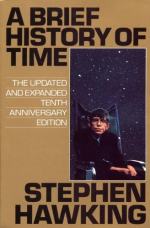
|
| Name: _________________________ | Period: ___________________ |
This test consists of 5 multiple choice questions, 5 short answer questions, and 10 short essay questions.
Multiple Choice Questions
1. The universe has how many dimensions?
(a) Three.
(b) Two.
(c) Five.
(d) Four.
2. What is one of the categories of force-carrying virtual protons?
(a) Stickons.
(b) Electrons.
(c) Gluons.
(d) Gravityions.
3. What is one of the colors of quarks?
(a) Purple.
(b) Red.
(c) Yellow.
(d) White.
4. The development of what kind of technology depends upon the theory of quantum mechanics?
(a) Silicon transmisions.
(b) Cell phones.
(c) Liquid crystal displays.
(d) Microelectronics.
5. What is the unit of measurement for particle energy?
(a) Electron volts.
(b) Electric volts.
(c) Electric particle volts.
(d) Eclectic volts.
Short Answer Questions
1. How close is the closest star, other than the sun, to earth?
2. Who developed the uncertainty principle?
3. From what location was the Introduction written?
4. Who created the law of motion?
5. Stephen Hawking has what disease?
Short Essay Questions
1. How did Einstein observe Brownian motion?
2. What happens at the event horizon of a black hole?
3. In 1687 Newton published mathematical formulas that do what?
4. Due to the influences of mass and energy, light does what?
5. Why do physicists of Stephen Hawking's caliber not make assumptions about the nature of the universe?
6. What do religious explanations to fundamental questions of the universe reveal?
7. What are quanta?
8. Why can nothing move faster than the speed of light according to the theory of relativity?
9. What will happen if the expansion of the universe stops?
10. What is the difference between the Aristotelian approach to science and Galileo's approach?
|
This section contains 424 words (approx. 2 pages at 300 words per page) |

|




